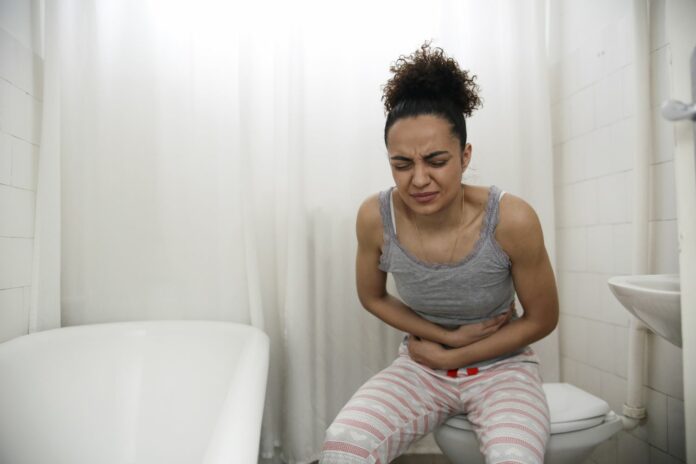Constipation is a very common everyday ailment. Although benign, it can be a source of significant discomfort if it persists or is repeated. When do we start talking about constipation?
What is constipation?
Constipation is a common disorder of the digestive system. It is characterized by a decrease in the frequency of stools as well as difficulty in expelling feces. This is due to a slowdown in the progress of stools through the large intestine (colon). We speak of constipation when the frequency of defecation drops below three stools per week.
This phenomenon, which can create discomfort in the abdomen, can be due to several factors. Among them we find: a slowdown in intestinal transit, a diet low in fiber, insufficient hydration, lack of physical exercise or even certain medications.
The different degrees of constipation
Depending on the frequency of bowel movements, constipation can be classified into different categories:
Temporary constipation: it manifests itself as a short episode of difficulty in passing stools, with a frequency of less than three stools per week.
Severe constipation: it causes more pronounced and persistent symptoms, often requiring medical intervention. Severe constipation is when there is less than one bowel movement per week.
Furthermore, constipation can also be assessed according to its duration:
Acute or occasional constipation: This occurs suddenly and is often linked to temporary changes in diet or environment, which can be resolved with simple adjustments.
Chronic constipation: it is characterized by recurrent and prolonged episodes of difficulty emptying the intestines, which persist for more than 6 months. This form of constipation requires careful medical attention, as it may be a sign of an underlying disease.
Chronic constipation: characteristics
We speak of chronic constipation when the disruption of the digestive system extends for more than 6 months. Its occurrence may be a sign of more serious underlying problems.
Presence of fecal impaction (stool plug)
One of the frequently observed symptoms is the presence of fecal impaction, also called stool plug. This is a compact accumulation of feces in the intestines.
These hard masses can partially obstruct the passage of stools, thus contributing to the evacuation difficulties characteristic of chronic constipation.
The sign of a possible intestinal obstruction
In rare cases, chronic constipation may be a sign of intestinal obstruction. This serious disorder results in the partial or complete blockage of part of the intestine. The expulsion of feces and gases becomes impossible.
Bowel obstruction can result from a variety of factors. These include adhesions following abdominal surgery, tumors or pathological strictures of the intestine.
Constipation: what are the symptoms?
The number of bowel movements varies from one individual to another, from three bowel movements per day to three bowel movements per week. Constipation manifests itself by the following symptoms:
A decrease in the frequency of bowel movements;
Harder stools that make defecation difficult or even painful;
Stools that are less abundant or that is not expelled completely.
Pain in the stomach
Intestinal cramps
Abdominal bloating
Constipation can also lead to hemorrhoids which are often painful. This often leads to a vicious cycle because the person no longer dares to have a bowel movement due to the pain.
How to relieve constipation quickly?
Natural remedies
To get rid of constipation quickly, eat foods rich in fiber (fruits, vegetables), and avoid constipating foods like rice, pasta, etc. Also remember to drink plenty of water.
Physical activity (running, hiking, swimming) , even just walking, promotes transit movements and the evacuation of stools. Having regular activity helps the digestive system function well and avoid digestive disorders such as constipation. In addition, it helps regulate appetite.
How to induce bowel movements?
If your constipation does not resolve with these tips, talk to a doctor. You can also find laxative treatments in pharmacies. However, if you take it for too long and regularly it can cause constipation. It is best to seek advice from a doctor.
To make defecation easier, you can also use a toilet step stool. This allows you to get into a squatting position and relax your puborectal muscles, making it easier to pass stools. Indeed, modern toilets are not really adapted to our anatomy. By squatting, the colon is further compressed, which makes expulsion easier. This also helps unblock the valve at the entrance to the rectum, which prevents incontinence.
What is the best natural laxative?
The best natural treatment for constipation is diet. What to eat to relieve constipation? Here is a list of foods that promote transit:
Prunes;
Kiwis;
Figs; ;
Dried apricots;
Apples and pears;
Rhubarb;
Fruit juices (Contain fiber.);
Grapefruit; ;
Whole grains (bulgur, brown rice, etc.);
Dairy products made from fermented milk (yogurt);
Coffee.



